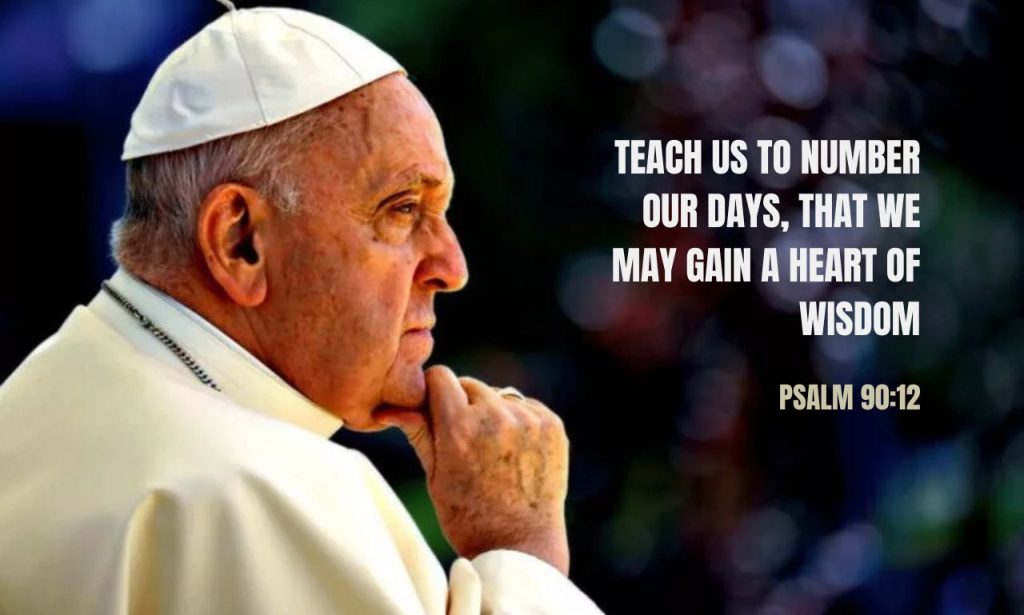Yesterday, he was out visiting the prisons—embracing the forgotten, washing the feet of the condemned, speaking softly with the gentleness of a shepherd. Today, he is gone. A sudden stroke, and just like that, the earthly pilgrimage of a man beloved by millions has come to an end.
The death of the Pope is not just a moment in history—it is a moment for soul-searching. It is a divine whisper, reminding us of life’s fragility, the futility of riches, and the eternal value of a life lived for others.
From Buenos Aires to the Vatican: A Humble Journey
Pope Francis, born Jorge Mario Bergoglio on 17 December 1936, in the Flores neighbourhood of Buenos Aires, Argentina, came from modest beginnings. His parents were Italian immigrants, and he grew up in a household defined by simplicity, faith, and a strong work ethic. Before entering the seminary, he earned a diploma as a chemical technician and worked in a food laboratory. He also worked as a janitor and even briefly as a bouncer.
From those unremarkable roots, he rose—by grace and calling—to become the first pope from the Americas, and the first Jesuit to hold the papal office. Yet, even as the world bowed before him, he refused to wear grandeur like a crown.
In a world where success often corrupts, he remained grounded. Despite the splendour of the Vatican, his personal lifestyle was marked by profound simplicity. He declined the opulent Apostolic Palace and chose instead to live in the modest guesthouse of Casa Santa Marta. He wore old shoes, carried a worn briefcase, and preferred economy cars to limousines. His humility was not for show—it was his true nature.
“Better a little with the fear of the Lord than great wealth with turmoil.”
— Proverbs 15:16
A Heart for the Forgotten
Pope Francis’s pontificate was defined by a profound commitment to the marginalised. Rather than seeing faith as confined to rituals or stained-glass sanctuaries, he revealed it as something alive—in the gutters of suffering, in the cries of the oppressed, and in the hearts of the poor. Throughout his papacy, he visited prisoners, embraced refugees, and consistently called for justice on behalf of the abused and displaced.
He championed the cause of those the world prefers to ignore. His passing now beckons us to ask: are we living with compassion? Are we reaching out—not just to those like us—but to the least among us?
“Truly I tell you, whatever you did for one of the least of these brothers and sisters of mine, you did for me.”
— Matthew 25:40
Life Is a Vapour
He was here only yesterday.
Speaking gently. Walking slowly. Visiting the sick and the imprisoned. And now, he is no more. How fragile is life. How fleeting is our breath.
“Teach us to number our days, that we may gain a heart of wisdom.”
— Psalm 90:12
We often live as though time is infinite. We push back purpose, delay kindness, and assume we have years to find meaning. But the Pope’s sudden passing is a sacred reminder: live today as if it were your last—not in fear, but in readiness. For when God calls us home, may we be found faithful, our lamps burning, our hands still serving.
“Well done, good and faithful servant… enter into the joy of your Lord.”
— Matthew 25:23
We Came with Nothing, and We Shall Leave with Nothing
He was the spiritual head of over a billion people, yet he leaves behind all robes, rings, titles, and honours. He brought nothing into this world, and he takes nothing from it.
We too are travellers, not settlers. Our homes, our cars, our clothes, our trophies—none of it matters at the gate of eternity. The only wealth that survives the grave is love, humility, and service.
“For we brought nothing into the world, and we can take nothing out of it.”
— 1 Timothy 6:7
Let us walk more lightly. Speak more kindly. Give more freely. Forgive more often. The measure of a good life is not how much we gathered, but how many we lifted.
A Legacy Worth Emulating
Pope Francis leaves behind not just an office, but an example. He showed that spiritual greatness has nothing to do with power and everything to do with presence. He lived close to the ground, close to the people, and close to God.
From a small neighbourhood in Buenos Aires to the seat of global religious leadership, his life is proof that greatness is found in surrender, not self-promotion. He preached with his hands, his silence, and his choices.
As we mourn, let us also reflect. Let this not simply be a loss to observe, but a life to emulate.
Are we living as people of mercy?
Are we numbering our days wisely?
Are we walking toward heaven or merely wandering?
His chapter has closed, but our story continues. Let us write it with intention, compassion, and courage.
“I have fought the good fight, I have finished the race, I have kept the faith.
Now there is in store for me the crown of righteousness.”
— 2 Timothy 4:7–8
May we all be found worthy when our own day comes. Amen.
Reflection Questions
Before you close this page, ask yourself:
- What am I clinging to that has no eternal value?
- Who needs my compassion today?
- If God called me home tonight, would I be ready?
The Pope is gone—but his light has not been extinguished. It shines now in the lives we choose to live.
